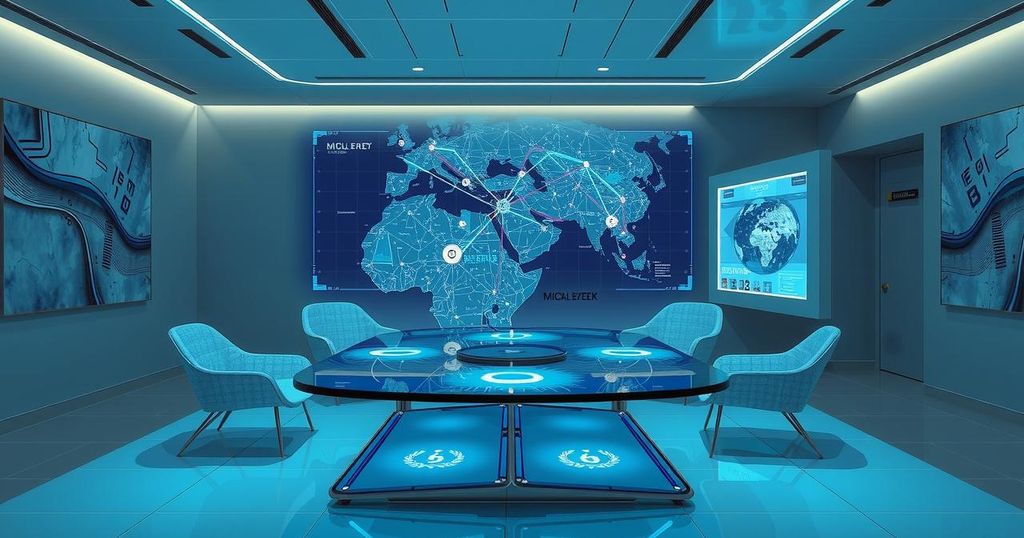Politics
BRAZIL, CHATHAM HOUSE, DONALD TRUMP, EUROPE, EUROPEAN UNION, GEOPOLITICS, LO, LON - DON, LONDON, LU, LUIZ INACIO LULA DA SILVA, NATIONAL SECURITY, NORTH AMERICA, REUTERS, SOUTH AMERICA, SOUTH AMERICAN MERCOSUR, STAB, STABROEK NEWS, TARIFFS, TATIANA PRAZERES, TRADE RELATIONS, TRUMP, U. S, UNITED KINGDOM, UNITED STATES, WORLD TRADE ORGANIZATION, WTO
Omar El-Sharif
Brazil Warns of Risks in Global Trade Amid U.S. Tariffs
Brazil’s Secretary of Foreign Trade, Tatiana Prazeres, voiced concerns about the potential weaponization of global trade following new U.S. tariffs. She warned that these aggressive actions could worsen tensions within the WTO. Brazil remains committed to multilateralism and plans to form new trade coalitions to enhance stability and predictability in trade relations.
Brazil’s Secretary of Foreign Trade, Tatiana Prazeres, expressed significant concerns regarding the potential ‘weaponization’ of global trade following U.S. President Donald Trump’s recent announcement of a 25% tariff on imported cars and trucks. Prazeres emphasized that this aggressive stance from the U.S. might exacerbate existing tensions within the World Trade Organization (WTO).
During her remarks at a global trade conference hosted by Chatham House in London, Prazeres noted, “We didn’t need to wake up to what was announced last evening,” referring to the unexpected tariff announcement. She further elaborated on the troubling trend, stating, “What we see today is that trade is being used as a power tool, so it is a big risk of trade being increasingly weaponised.”
Brazil remains committed to multilateralism and the WTO, as indicated by President Luiz Inacio Lula da Silva’s vow to file a complaint against the tariffs affecting Brazilian steel. Furthermore, Prazeres recognized the current limitations of the global trading system, remarking, “I don’t think at this time we have the opportunity of promoting major changes.”
Prazeres also revealed Brazil’s intention to forge new trade coalitions to safeguard its rules-based trade relations with like-minded nations. She highlighted the December free trade agreement between the European Union and the South American Mercosur bloc as a pivotal example of Brazil’s proactive approach to trade relations. Prazeres affirmed, “We are willing to promote trade-based rules, we are willing to seek predictability and stability.”
In summary, Brazil’s concerns highlight the precarious state of global trade in the wake of protectionist policies, such as the U.S. tariffs on imported vehicles. The emphasis on multilateral trade relations and the potential for collaborative agreements underscores Brazil’s commitment to a stable trade environment despite rising tensions. The situation remains dynamic, with the likelihood of further complications within the WTO framework.
Original Source: www.stabroeknews.com








Post Comment